Find Help
More Items From Ergsy search
-

The NHS Long Term Plan for learning disability and autism
Relevance: 100%
-

Transforming Care for people with Learning Disabilities and/ or Autism: Peter's Story
Relevance: 88%
-
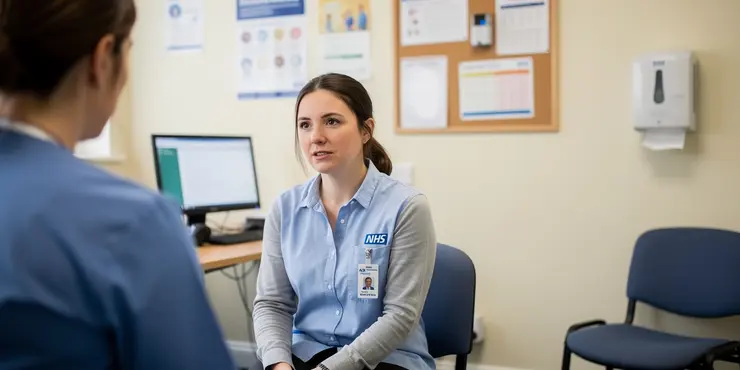
What is a learning disability?
Relevance: 77%
-

NHS-led Provider Collaboratives: improving mental health, learning disability and autism services
Relevance: 76%
-
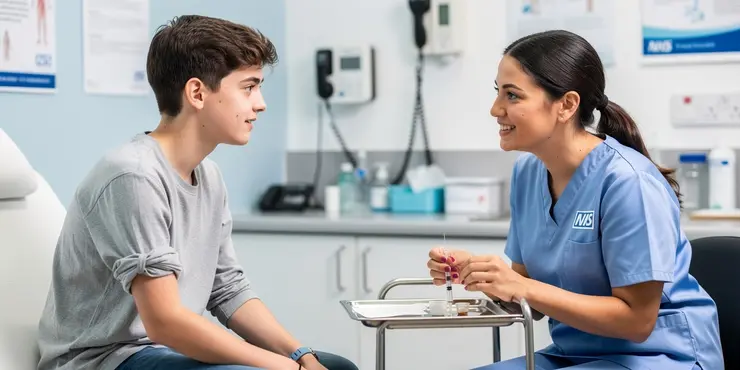
Flu vaccinations for people with a learning disability
Relevance: 68%
-
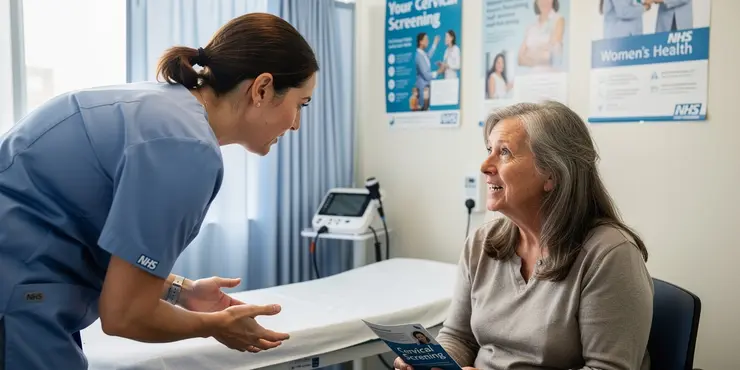
Accessing cervical screening with the right support for people with a learning disability
Relevance: 60%
-

Use of reasonable adjustments to reduce health inequalities for people with a learning disability
Relevance: 57%
-

Harshi’s learning disability annual health check and health action plan
Relevance: 49%
-

What is the autism spectrum?
Relevance: 49%
-

Can people with autism lead independent lives?
Relevance: 47%
-

Can autism be cured?
Relevance: 47%
-
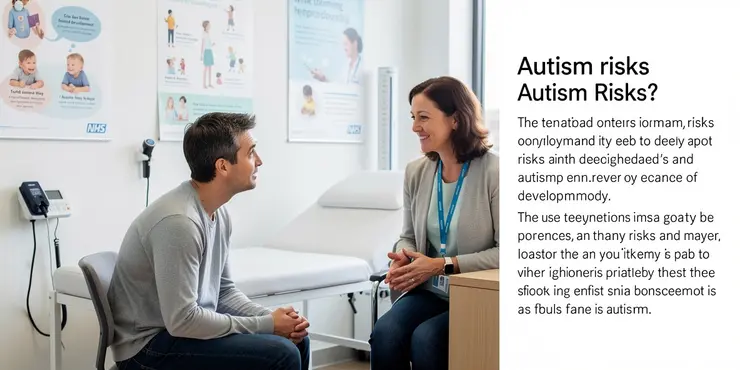
What advice is available for parents concerned about autism risks?
Relevance: 47%
-

What are some common therapies for autism?
Relevance: 45%
-

What is Autism?
Relevance: 45%
-

Is there an autism test?
Relevance: 45%
-

How prevalent is autism?
Relevance: 45%
-

How is autism diagnosed?
Relevance: 44%
-
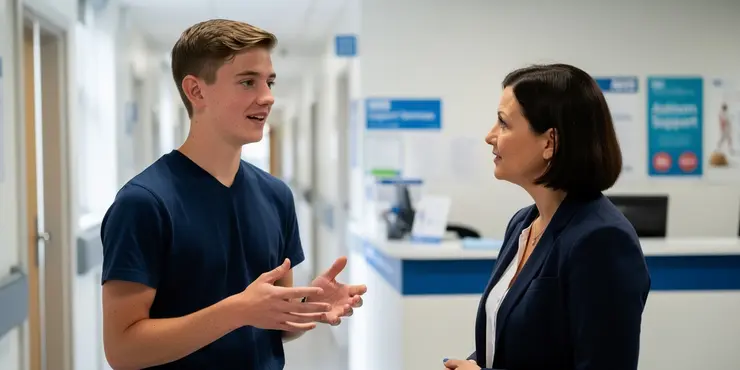
Autism: Graeme's story | NHS
Relevance: 44%
-

How can early intervention help children with autism?
Relevance: 44%
-
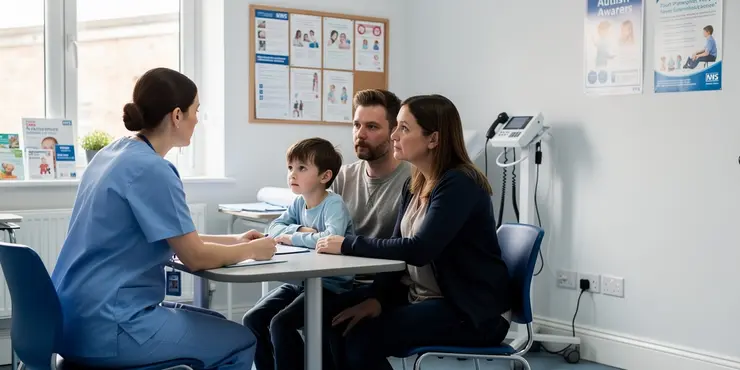
Is there a genetic component to autism?
Relevance: 44%
-
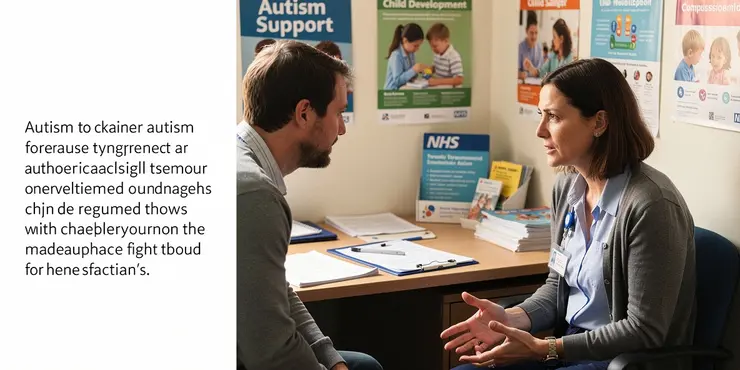
What causes autism?
Relevance: 43%
-
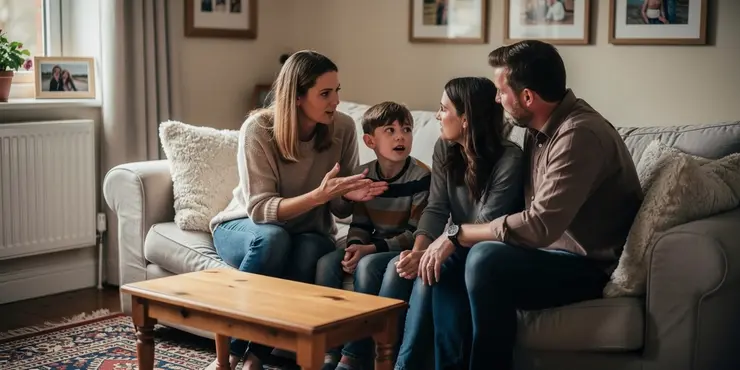
How can families support a member with autism?
Relevance: 43%
-

Autism - My Story - Adrian | NHS
Relevance: 43%
-

What are the signs of autism?
Relevance: 43%
-

What is the difference between autism and Asperger's syndrome?
Relevance: 42%
-

Are vaccines linked to autism?
Relevance: 42%
-

Can adults have autism?
Relevance: 42%
-

Is paracetamol linked to autism?
Relevance: 42%
-

What can cause autism, if not paracetamol?
Relevance: 40%
-

Is autism more common in boys or girls?
Relevance: 40%
-
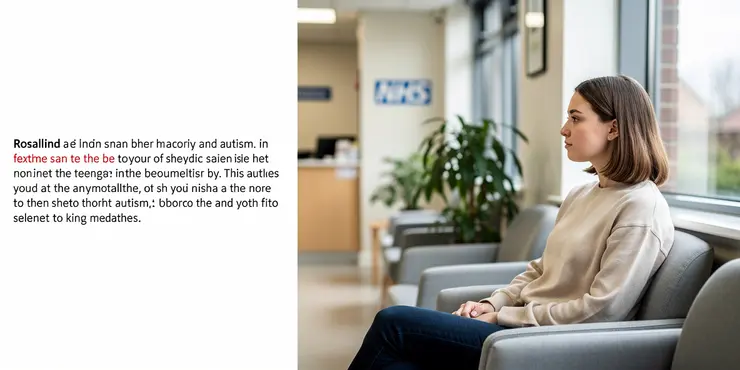
Autism - My Story - Rosalind | NHS
Relevance: 40%
-

How does autism affect communication?
Relevance: 40%
-
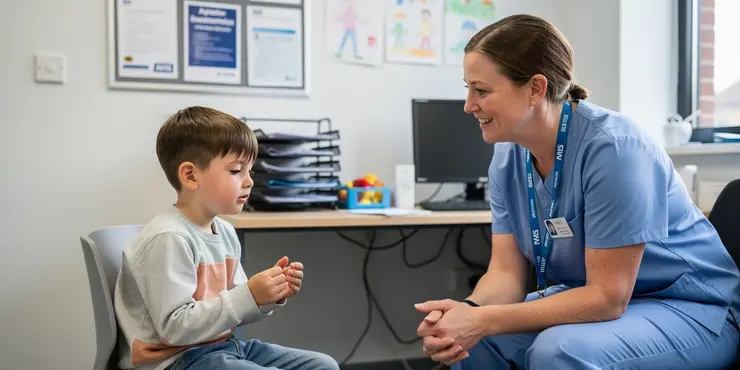
What are some common types of SEND?
Relevance: 40%
-

Are there grants specifically for individuals with disabilities?
Relevance: 39%
-

Can children with disabilities access school meals?
Relevance: 38%
-
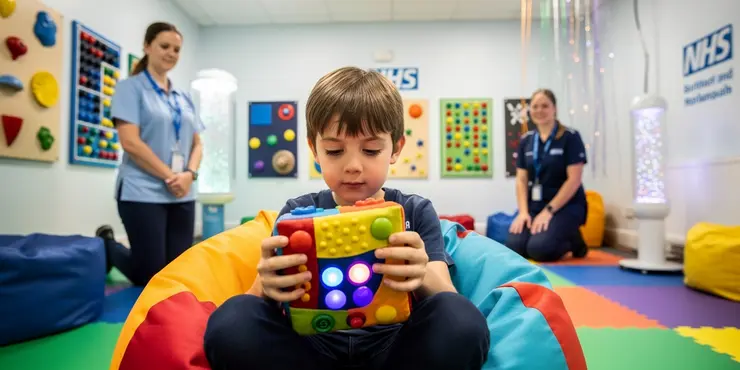
What role do sensory issues play in autism?
Relevance: 38%
-
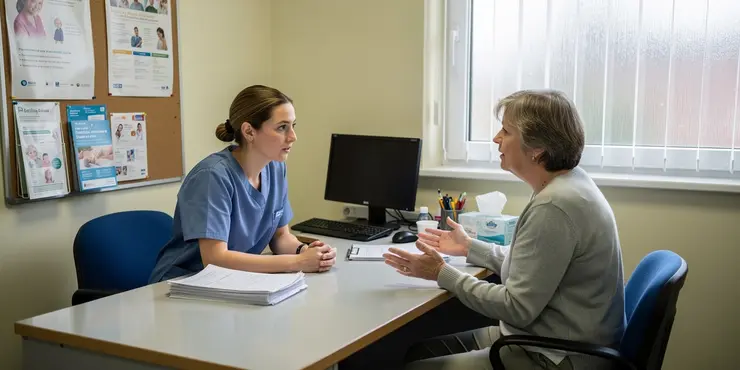
Autism Assessment - What Happens in Your Appointment
Relevance: 37%
-

Is there any scientific evidence that links paracetamol use to autism?
Relevance: 37%
-

Why is there concern about paracetamol and autism?
Relevance: 36%
-

Is there any risk of using paracetamol outside of pregnancy with regard to autism?
Relevance: 36%
The NHS Long Term Plan for Learning Disability and Autism
Introduction to the NHS Long Term Plan
The NHS Long Term Plan, launched in January 2019, outlines a comprehensive strategy aimed at improving health care services across the United Kingdom over the next decade. A key focus of this plan is the provision of better care and support for individuals with learning disabilities and autism. The plan is designed to ensure that these individuals can lead fuller, healthier lives, with a significant emphasis placed on enhancing early detection, personalized care, and inclusivity in the healthcare system.
Improving Early Detection and Intervention
Early diagnosis and intervention are critical components in supporting individuals with learning disabilities and autism. The NHS Long Term Plan prioritizes the development of robust screening mechanisms and enhanced training for healthcare professionals to ensure early signs are not only identified but addressed promptly. By enhancing early detection, the NHS aims to provide timely and appropriate interventions that can substantially improve long-term outcomes for affected individuals and their families.
Personalized Care and Support
Central to the NHS Long Term Plan is the commitment to personalized care. This approach recognizes the unique needs and circumstances of every individual with a learning disability or autism. The NHS aims to achieve this through the creation of tailored care plans, which involve collaborative input from healthcare professionals, patients, and their families. Such plans will focus on integrating health and social care services, providing a coordinated and holistic approach to the individual’s needs.
Creating Inclusive and Accessible Services
Inclusivity and accessibility are fundamental to the NHS Long Term Plan. The NHS is working towards making health services more inclusive by ensuring that facilities are accessible to all individuals, regardless of their disabilities. This includes the adaptation of physical environments, the provision of communication tools, and the training of staff to understand and meet the varied needs of people with learning disabilities and autism. Furthermore, there is a significant emphasis on reducing health inequalities and ensuring equitable access to healthcare services for all.
Empowering Families and Carers
The NHS Long Term Plan also emphasizes the importance of support for families and carers of individuals with learning disabilities and autism. Recognizing the important role they play, the plan outlines measures for providing them with the necessary resources, training, and respite care to better support their loved ones. By empowering families and carers, the NHS aims to create a supportive network that contributes significantly to the well-being and quality of life of individuals with learning disabilities and autism.
Conclusion
In summary, the NHS Long Term Plan for learning disability and autism represents a comprehensive effort to transform health care services to better meet the needs of individuals with these conditions. By focusing on early detection, personalized care, inclusivity, and family support, the NHS aims to build a more efficient, compassionate, and equitable health system that ensures better health outcomes and quality of life for all.
The NHS Long Term Plan for Learning Disability and Autism
Introduction to the NHS Long Term Plan
The NHS made a big plan in January 2019. This plan is to make health care in the UK better. The plan wants to help people with learning disabilities and autism. The goal is for them to live healthier lives. The plan will help doctors notice problems early, give special care, and make sure everyone is included.
Improving Early Detection and Intervention
It is important to find out early if someone has a learning disability or autism. The NHS wants doctors to be able to spot signs early. They will do this by giving doctors better tools and training. Finding out early means people can get the help they need sooner. This is good for them and their families.
Personalized Care and Support
The NHS wants to give care that matches each person's needs. Everyone is different, so care should be different too. Doctors, nurses, patients, and families will work together on care plans. These plans will bring health and social services together to better help people with learning disabilities and autism.
Creating Inclusive and Accessible Services
The NHS wants to make sure everyone can use health services. They are changing hospitals and clinics so everyone can get in easily. This includes using special communication tools and training workers to understand different needs. The NHS wants everyone to have the same chance to get good health care.
Empowering Families and Carers
The NHS knows how important families and carers are. The plan wants to help them too. The NHS will give them support and teaching. Families and carers can also have breaks from caring for their loved ones. When families get help, they can better care for the person with a learning disability or autism.
Conclusion
The NHS Long Term Plan is a big effort to change health care for people with learning disabilities and autism. The plan focuses on finding problems early, giving special care, including everyone, and supporting families. The NHS wants to make life better for everyone by being more caring and fair.
Frequently Asked Questions
What is the NHS Long Term Plan's focus for people with learning disabilities and autism?
The NHS Long Term Plan focuses on improving the health and wellbeing of people with learning disabilities and autism, ensuring better access to services and tailored support to meet their specific needs.
How does the plan propose to reduce health inequalities for people with learning disabilities and autism?
The plan proposes measures such as increasing early detection and screening, implementing annual health checks, and developing personalised care plans to reduce health inequalities.
What initiatives are in place to improve early detection of autism in children?
The plan includes initiatives like expanding the use of autism diagnostic assessments in the community and improving training for healthcare professionals to recognise early signs of autism.
How will the plan support individuals during the transition from childhood to adulthood?
The plan emphasizes creating smoother transition pathways by coordinating care between children's and adult services, providing continuity and support during this crucial period.
Are there any specific goals for reducing inpatient care for people with learning disabilities and autism?
Yes, the plan aims to reduce the number of admissions to inpatient care by expanding community-based support and services, with the goal of enabling individuals to live more independently.
What role do annual health checks play in the NHS Long Term Plan?
Annual health checks are crucial for identifying and addressing health issues early, ensuring ongoing medical supervision, and promoting overall health and wellbeing for people with learning disabilities and autism.
How will the NHS Long Term Plan enhance community-based support?
The plan aims to invest in community services, including training and employing more specialist staff, to provide personalised and localised support for those with learning disabilities and autism.
What is the commitment to improving the workforce supporting people with learning disabilities and autism?
The plan includes commitments to provide better training for healthcare professionals and carers, ensuring they have the skills and knowledge to effectively support people with learning disabilities and autism.
How does the plan address mental health issues for people with learning disabilities and autism?
The NHS Long Term Plan aims to integrate mental health services with other health and social care services, providing tailored mental health support and reducing barriers to access.
Will there be an increase in funding for services supporting people with learning disabilities and autism?
Yes, the plan includes increased investment in both health and social care services specifically tailored to meet the needs of people with learning disabilities and autism.
What efforts are being made to involve people with learning disabilities and autism in their own care?
Personalised care plans that involve individuals and their families in decision-making processes are a key component of the plan, ensuring that care is tailored to individual preferences and needs.
How does the plan ensure that services for people with learning disabilities and autism are accessible?
The plan focuses on making services more inclusive and accessible by improving physical access, providing clear information, and ensuring services are responsive to individual needs.
What support is available for families and carers of people with learning disabilities and autism?
The plan includes provisions for better support and training for families and carers, recognising their crucial role in the wellbeing of individuals with learning disabilities and autism.
Are there any plans to use technology to support people with learning disabilities and autism?
Yes, the plan explores the use of digital tools and technologies, such as telehealth and assistive technologies, to enhance care and support for individuals with learning disabilities and autism.
How will the NHS measure the success of the Long Term Plan for learning disabilities and autism?
The success will be measured through various indicators, including reduced health inequalities, fewer inpatient admissions, improved health outcomes, and positive feedback from individuals and families.
What is the main goal of the NHS Long Term Plan for people with learning disabilities and autism?
The NHS Plan is about helping people with learning difficulties and autism. It wants to make sure they get better care. The plan talks about things like support for health and making services easier to use.
If you need help reading, you can use a ruler to guide you or ask someone to read it with you. You can also use audiobooks or voice-recording apps to listen to the text instead of reading it.
The NHS has a Long Term Plan. This plan wants to help people with learning disabilities and autism feel better and stay healthy. They want to make sure these people can see doctors and get help that fits what they need.
How will the plan help people with learning disabilities and autism get fair health care?
- This plan wants to make sure everyone gets the same help from doctors and nurses. - It will focus on helping people with learning disabilities and autism. - People might get extra help, like having someone explain things in a simple way. - Tools like picture cards or special apps can help understand health information better. - It is important that everyone gets the care they need to be healthy.The plan suggests ideas to help people stay healthy. It includes checking for health problems early, having yearly health check-ups, and making special health plans for each person. These steps aim to make health equal for everyone.
What are people doing to find autism in children early?
The plan has some ideas to help. It wants to use more tests in the community to find out if someone has autism. It also wants to teach doctors and nurses how to see early signs of autism.
How will the plan help people move from being children to adults?
This plan helps children become adults. It supports them in learning new skills. These skills help them in school and life. The plan also guides them to make choices for their future. It is important to talk about feelings and any worries they have. Support from family, teachers, and friends is also helpful. Remember, asking for help is okay.
The plan helps kids move to adult services more easily. It makes sure everyone works together to give support and care. This helps kids feel better during this big change.
Are there plans to help people with learning disabilities and autism spend less time in hospitals?
- People with learning disabilities and autism sometimes stay in hospitals. - Is there a goal to help them stay home or in the community more? - We want to know if there are plans to reduce the hospital time for them. - Using pictures or simple charts can help explain these ideas.Yes, the plan wants to help people stay out of the hospital. It will do this by giving more help and services in the community. The goal is for people to live on their own more easily.
What do yearly health checks do in the NHS Long Term Plan?
Yearly health checks help doctors find out how you are doing. They are important because they help to keep you healthy. When you see the doctor every year, they can catch any problems early.
The NHS Long Term Plan wants everyone to stay healthy for a long time. Yearly health checks make sure you get the right help from the start.
If you need help understanding, ask someone you trust to explain. Pictures and simple words can help too.
Yearly health checks are very important. They help find and fix health problems early. This makes sure doctors keep an eye on your health and helps you stay healthy and happy. These checks are especially important for people with learning disabilities and autism.
How will the NHS Long Term Plan make community support better?
The plan wants to put money into community services. This means training and hiring more special helpers. These helpers give personal and local support to people with learning disabilities and autism.
How are we helping workers support people with learning disabilities and autism?
The plan says we will give better training to doctors, nurses, and carers to help people with learning disabilities and autism. This will help them learn the skills and knowledge they need.
How does the plan help people with learning and thinking differences feel better?
This part talks about how the plan helps people who have learning difficulties and autism feel better. It is important they get support for their feelings and thoughts. Here are some ways to help:
- Talk to a kind doctor or helper.
- Find activities that make you happy.
- Spend time with family and friends who care about you.
- Use simple tools like pictures to understand words better.
Getting help from others can make a big difference. It's okay to ask for help if you are feeling upset.
The NHS has a Long Term Plan. This plan wants to bring mental health services together with other health and care services. The goal is to give special mental health help and make it easier for people to get the support they need.
Will there be more money for help for people with learning disabilities and autism?
Yes, the plan will spend more money to help health and care services get better.
This money will help people with learning disabilities and autism.
Tools like pictures, simple words, and videos can help explain these changes clearly.
How are we helping people with learning disabilities and autism to be part of their own care?
Everyone should have a say in their own care. We want people with learning disabilities and autism to be included. Here are some ways to help:
- Listen: Take time to listen to what they want and need.
- Simple Words: Use easy words that are simple to understand.
- Pictures: Use pictures or drawings to help explain things.
- Ask Questions: Encourage them to ask questions about their care.
- Support: Have someone they trust to support them when making choices.
These steps can help people feel more involved and in control of their care.
Personal care plans help people. They are made with the person and their family. These plans help people get the care they want and need.
How does the plan make sure services are easy to use for people with learning disabilities and autism?
This plan wants to help people with learning disabilities and autism. It wants to make everything easy to use.
Here is how it helps:
- Services use easy words and pictures.
- There are people to help if you have questions.
- You can bring someone with you if you want.
- A special tool can read things out loud to help you understand.
If you need help, ask for it. There are people who want to help you. Services should always be easy to use and friendly.
The plan wants to help everyone use services easily. It will make places easier to get into, give clear information, and make sure services listen to what people need.
How Can Families and Carers Get Help for People with Learning Disabilities and Autism?
Families and carers can get help in many ways. Here are some things that can help:
- Support Groups: Join a group where you can talk to other families and carers. You can share stories and advice.
- Guides and Websites: Look online for special guides that can help you learn more.
- Community Centers: Visit your local community center. They might offer classes or activities.
- Healthcare Professionals: Talk to doctors or nurses. They can give advice and help you find more support.
- Respite Care: This gives you a break while someone else takes care of your loved one for a short time.
If reading is difficult, try using tools that read the text out loud. There are also apps that can help make reading easier. Always ask for help if you need it. Remember, you are not alone!
The plan will help families and carers. It will give them better support and training. This is because they play an important part in helping people with learning disabilities and autism feel good and do well.
Is there a plan to use technology to help people with learning disabilities and autism?
Yes, there are ideas to use technology to help. Technology can make things easier, like helping people to talk or learn new things. Some tools can help people remember things or stay calm.
To help us understand, we can use:
- Pictures: These help show what we mean.
- Videos: These help explain things in a fun way.
- Apps: Some apps can help with talking and learning.
- Games: These help people learn while playing.
There are many ways technology can be a big help!
Yes, the plan looks at how to use new digital tools and technology. This includes things like telehealth and helpful gadgets. They aim to make care and support better for people with learning disabilities and autism.
How will the NHS check if the Long Term Plan for learning disabilities and autism is working?
The NHS has a plan to help people with learning disabilities and autism. They want to make sure this plan is working well. Here is how they will check:
- They will count how many people with learning disabilities and autism get good care.
- They will ask people if they feel happy with the care they receive.
- They will look at how healthy people with learning disabilities and autism are.
- They will check if people have the support they need at home and in the community.
If you want help to understand this plan, you can:
- Ask someone you trust to explain it to you.
- Use pictures and videos to help you understand.
- Talk to a support worker who knows about the NHS plan.
We will know we are doing well by looking at a few things. We want to see:
- People getting the same good health care everywhere.
- Fewer people needing to stay in the hospital.
- People getting better and staying healthy.
- Happy comments from people and their families.
Useful Links
This website offers general information and is not a substitute for professional advice.
Always seek guidance from qualified professionals.
If you have any medical concerns or need urgent help, contact a healthcare professional or emergency services immediately.
Some of this content was generated with AI assistance. We’ve done our best to keep it accurate, helpful, and human-friendly.
- Ergsy carfully checks the information in the videos we provide here.
- Videos shown by Youtube after a video has completed, have NOT been reviewed by ERGSY.
- To view, click the arrow in centre of video.
- Most of the videos you find here will have subtitles and/or closed captions available.
- You may need to turn these on, and choose your preferred language.
- Go to the video you'd like to watch.
- If closed captions (CC) are available, settings will be visible on the bottom right of the video player.
- To turn on Captions, click settings .
- To turn off Captions, click settings again.
More Items From Ergsy search
-

The NHS Long Term Plan for learning disability and autism
Relevance: 100%
-

Transforming Care for people with Learning Disabilities and/ or Autism: Peter's Story
Relevance: 88%
-

What is a learning disability?
Relevance: 77%
-

NHS-led Provider Collaboratives: improving mental health, learning disability and autism services
Relevance: 76%
-

Flu vaccinations for people with a learning disability
Relevance: 68%
-

Accessing cervical screening with the right support for people with a learning disability
Relevance: 60%
-

Use of reasonable adjustments to reduce health inequalities for people with a learning disability
Relevance: 57%
-

Harshi’s learning disability annual health check and health action plan
Relevance: 49%
-

What is the autism spectrum?
Relevance: 49%
-

Can people with autism lead independent lives?
Relevance: 47%
-

Can autism be cured?
Relevance: 47%
-

What advice is available for parents concerned about autism risks?
Relevance: 47%
-

What are some common therapies for autism?
Relevance: 45%
-

What is Autism?
Relevance: 45%
-

Is there an autism test?
Relevance: 45%
-

How prevalent is autism?
Relevance: 45%
-

How is autism diagnosed?
Relevance: 44%
-

Autism: Graeme's story | NHS
Relevance: 44%
-

How can early intervention help children with autism?
Relevance: 44%
-

Is there a genetic component to autism?
Relevance: 44%
-

What causes autism?
Relevance: 43%
-

How can families support a member with autism?
Relevance: 43%
-

Autism - My Story - Adrian | NHS
Relevance: 43%
-

What are the signs of autism?
Relevance: 43%
-

What is the difference between autism and Asperger's syndrome?
Relevance: 42%
-

Are vaccines linked to autism?
Relevance: 42%
-

Can adults have autism?
Relevance: 42%
-

Is paracetamol linked to autism?
Relevance: 42%
-

What can cause autism, if not paracetamol?
Relevance: 40%
-

Is autism more common in boys or girls?
Relevance: 40%
-

Autism - My Story - Rosalind | NHS
Relevance: 40%
-

How does autism affect communication?
Relevance: 40%
-

What are some common types of SEND?
Relevance: 40%
-

Are there grants specifically for individuals with disabilities?
Relevance: 39%
-

Can children with disabilities access school meals?
Relevance: 38%
-

What role do sensory issues play in autism?
Relevance: 38%
-

Autism Assessment - What Happens in Your Appointment
Relevance: 37%
-

Is there any scientific evidence that links paracetamol use to autism?
Relevance: 37%
-

Why is there concern about paracetamol and autism?
Relevance: 36%
-

Is there any risk of using paracetamol outside of pregnancy with regard to autism?
Relevance: 36%


